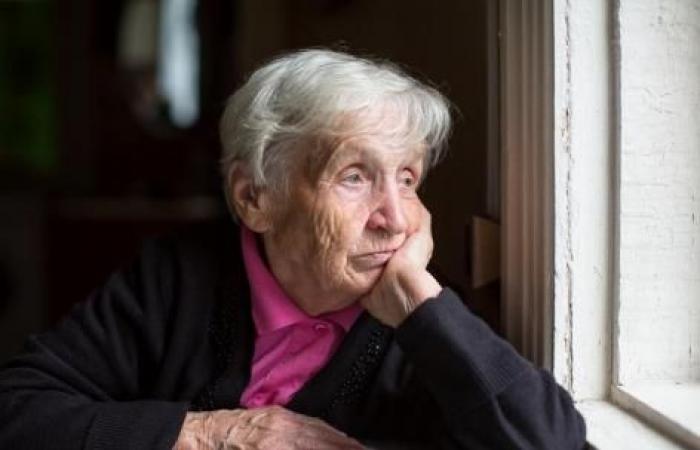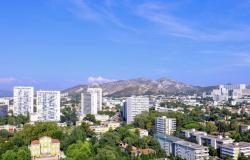Meryl Le Breton, from the Advocacy and Press Relations Department of Petits Frères des Pauvres, is responsible for highlighting the association’s actions to the media and the general public. Since its creation in 1946, the association has aimed to combat the isolation and loneliness of elderly people, a real public health issue: volunteering, holiday homes, Christmas events, etc.
Why Doctor: How to define loneliness and social isolation?
Meryl Le Breton: These are two completely different concepts. Loneliness is a feeling: you can be physically surrounded by many people (family, friends, colleagues, etc.) but still feel personally alone on a daily basis. Isolation is quantified: we are isolated if we have few or no people to talk to during the day. According to the plea of the Petits Frères des Pauvres published in 2021, it is estimated that today in France, two million elderly people are isolated (from the two main circles, family and friends) and 530,000 elderly people are even in a situation of social death, defined by the fact of no longer having any contact with four networks (family, friends, neighborhood and associations). For comparison, there were 900,000 and 300,000 respectively in 2017.
Widowhood is the first criterion for isolation: once the spouse leaves, many elderly people find themselves isolated.
How can we explain this worsening of the situation?
There are two main causes. First, the Covid-19 health crisis from 2020 further isolated the elderly, but not only that – young people were greatly affected. The other reason is demographic: there are more and more seniors and fewer and fewer young people, so in fact, there is a greater chance that older people will find themselves isolated.
What is the typical profile of an elderly person suffering from isolation?
She is a single 85-year-old woman, often in a precarious situation. Widowhood is the first criterion for isolation: once their partner leaves, many women find themselves isolated. And it is enough for the spouse to be the one who maintained the social relations for you to lose everything once he or she dies.
At the time of the first confinement, there was a lot of talk about “sliding syndrome”: many elderly people, out of weariness or despair, simply stopped eating, hydrating themselves, taking care of themselves…
What are the links between precariousness and isolation among the elderly?
When you have health problems, like many seniors, but you lack resources, you take less care of yourself, so you are more likely to lose your independence. However, whoever says he loses his autonomy means staying at home and no longer having any connection with the outside world. Precariousness also leads to fewer social activities: you no longer go to the cinema or to a restaurant with your friends, you cancel your subscription to the pétanque or reading club… The lack of resources limits the opportunities to preserve links or to create new ones.
-Isolation affects physical and mental health, the risk of depression… Is it only linked to the lack of social connections?
There is also old age, of course, which brings its share of health problems, but isolation makes the situation worse: the less independent you are, the less you go out and the less you want to go out, the worse your health problems are. … At the time of the first confinement in 2020, there was a lot of talk about “sliding syndrome”: in a context where we could no longer see anyone, many elderly people, out of weariness or despair, simply stopped visiting. to feed, to to hydrate, to take care of themselves… And some slowly slipped towards death. Isolation therefore has dramatic consequences on health. It is an important risk factor for early mortality. When we hear the testimonies of people who were isolated, who thought they would end their lives alone and who, thanks to the association and volunteering, reconnect with others, they say they have found a real family. And finally a little meaning to their life, which is good for their health.
Unlike a person on the street, who is often “visible”, you may never come across an isolated person who lives in your building.
How to identify and prevent the isolation of elderly people?
Isolation is a complex suffering to detect because, by definition, these are people who we do not see, who are isolated from the rest of the world. Unlike a person on the street, who is often “visible”, you may never come across an isolated person who lives in your building. Add to this that these are people who, sometimes, are ashamed and do not want to be helped, often considering that there are worse things than their situation. They are actually people who complain little. It’s rare that they report themselves: they tend to be relatives, the neighborhood, the doctor, businesses or the town hall. To spot an isolated person, try to notice if a neighbor goes out less and less, receives few visits, or if you haven’t seen them for a long time…
How can we help isolated people on our own scale?
Everyone can act on their own scale, without necessarily becoming a volunteer. The Little Brothers of the Poor have created the “Loneliness Hunter” kit, which provides “marbles” to help citizens create bonds with isolated people. It includes a deck of cards with questions like “What is your fondest vacation memory” or “what is your favorite food” (it doesn’t matter what the question is, in fact, the idea is to start discussions), a postcard to slip into a mailbox (to offer the person shopping for example), a poster to leave with a merchant to let you know, etc.
It’s a practical kit that makes meeting people easier, knowing that older people are often the target of scams, and therefore a little suspicious at first. There are many roundabout ways to make contact, even if it’s just asking for salt or eggs from a neighbor you know is lonely. You will quickly feel if the person needs to talk, to exchange ideas, in short to be less alone.
Being stigmatized [par la société et les gens] as an elderly person can, in fact, push you to isolate yourself.
What feelings do lonely people express? of anger towards their loved ones, of shame, of disappointment towards a society which forgets them a little?
Most of the elderly people that Les Petits Frères des Pauvres support no longer have any loved ones at all. They don’t blame anyone, they know that everyone works and has their own life. No one is insensitive to the cause of the isolation of the elderly. It’s really the rhythm of life that does that. There is no resentment, everyone has their story. However, some complain about the way society as a whole treats older people. For example, the lack of public transport or benches to sit on, the closure of local businesses, or even ageism: some feel infantilized by the actions or looks of others. However, being stigmatized as an elderly person can, in fact, push you to isolate yourself.






